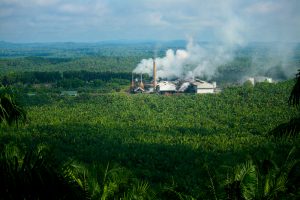Indonesia and Malaysia have welcomed the European Union’s controversial proposal to delay the implementation of its new anti-deforestation law, which they have staunchly opposed since its inception last year.
On Wednesday, the European Commission said that it would propose delaying implementation of the European Union Deforestation-free Regulation (EUDR), which bans EU imports of a range of commodities linked to forest destruction.
The proposal, which has been harshly criticized by environmental groups, followed intense lobbying from governments and companies across the globe, which argued that the EUDR unfairly penalized their exports to Europe and would harm small farmers and businesses.
Among the most vocal opponents of the law were Malaysia and Indonesia, the world’s two leading producers of palm oil, which, given its longstanding links to “widespread rainforest destruction and wildlife loss” in Southeast Asia, was set to come under special scrutiny once the EUDR was in effect. The two nations together account for 85 percent of global palm oil production.
After the law’s enactment, Airlangga Hartarto, Indonesia’s coordinating minister for economic affairs, criticized the EUDR as a form of “regulatory imperialism.” A senior Malaysian trade official suggested that his country could cease palm oil exports to the EU entirely.
Malaysia and Indonesia, which joined forces last year to lobby against the law, yesterday hailed the Commission’s proposed delay to the implementation of the law. In a statement yesterday, Malaysia’s Palm Oil Council described it as a “victory for common sense,” the AFP news agency reported.
“Malaysia has over the past two years consistently provided evidence… that the implementation date of 30th December 2024 was unworkable, and the EU systems were not ready,” the council said.
Indonesia’s palm oil association GAPKI concurred. “We will continue to advocate against which regulations are burdensome, or not in accordance with Indonesia’s law,” GAPKI chairman Eddy Martono told Reuters.
In a separate interview with Reuters published yesterday, Airlangga Hartarto, the country’s coordinating minister for economic affairs, said that Jakarta was happy with the delay, but that it believed the legislation should be canceled altogether. In particular, he expressed opposition to the EU’s country benchmarking on deforestation, which will see the European Commission will classify nations as high, standard, or low risk in terms of compliance with the EUDR.
“It’s not about the delay but the implementing regulations,” Airlangga told the news agency. “The EU has no right to be a rating agency.” The proposed delay was also welcomed by coffee producers in Vietnam.
The EUDR, which was approved by the EU in late 2022 and came into force in July of last year, aims to “ensure that a set of key goods placed on the EU market will no longer contribute to deforestation and forest degradation in the EU and elsewhere in the world,” the European Commission said in a statement following the law’s passage.
To achieve this, it mandates that anyone importing or exporting commodities linked to forest degradation into or out of the EU market must prove that the products do not originate from recently deforested land and have not contributed to forest degradation. In addition to palm oil, the law will apply to a range of products, including cattle, soy, coffee, cocoa, timber, and rubber, as well as various other products derived from these.
Prior to the delay, companies had a deadline of December 30, 2024 for compliance with the EUDR. It and when the delay is approved by the EU ministers and the European parliament, the law will come into force on December 30, 2025 for large companies and June 30, 2026 for small enterprises.































